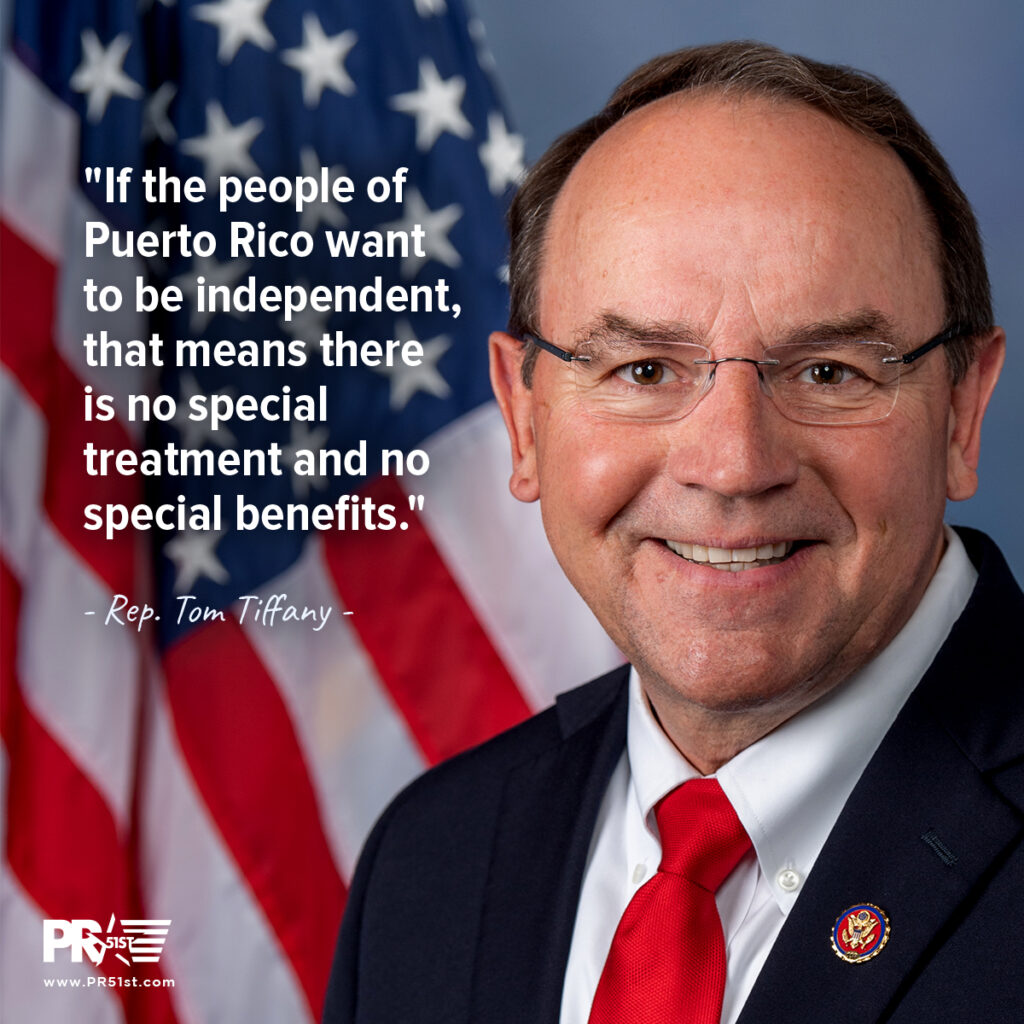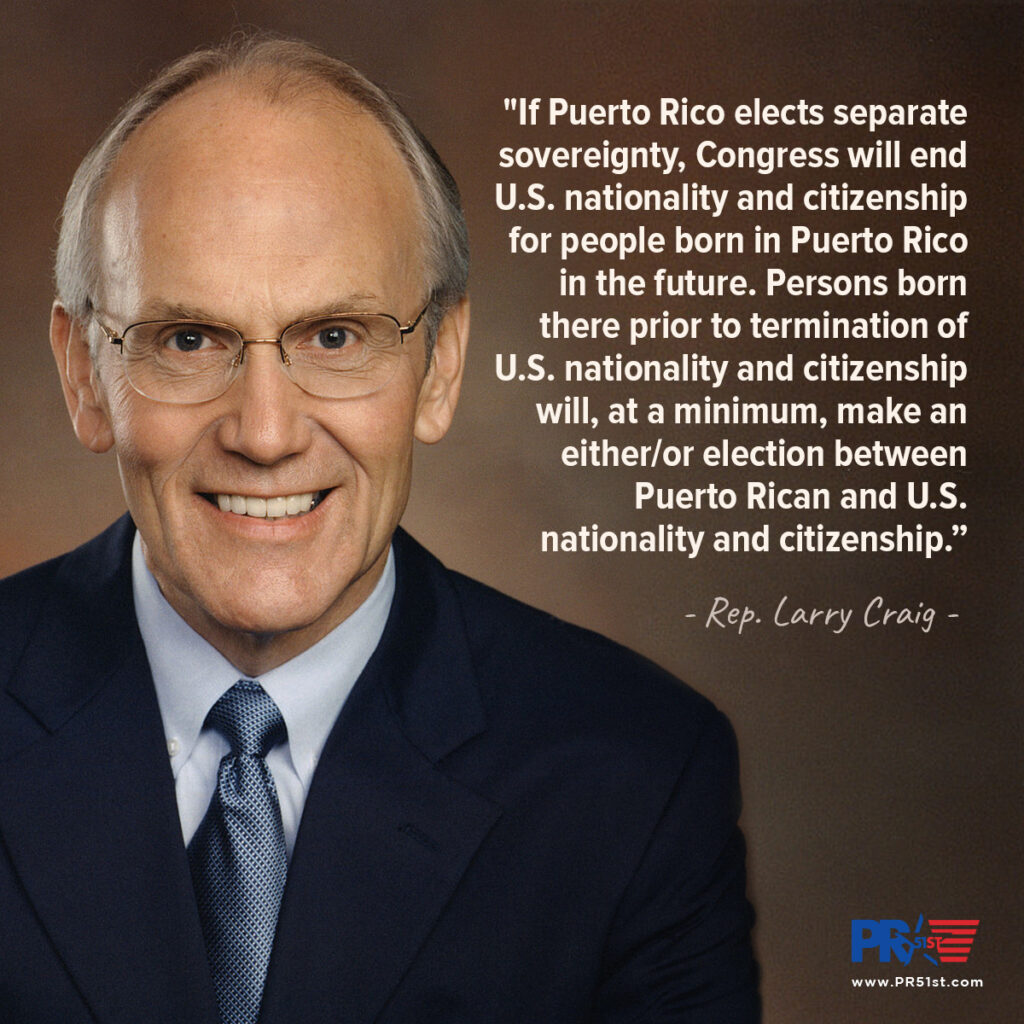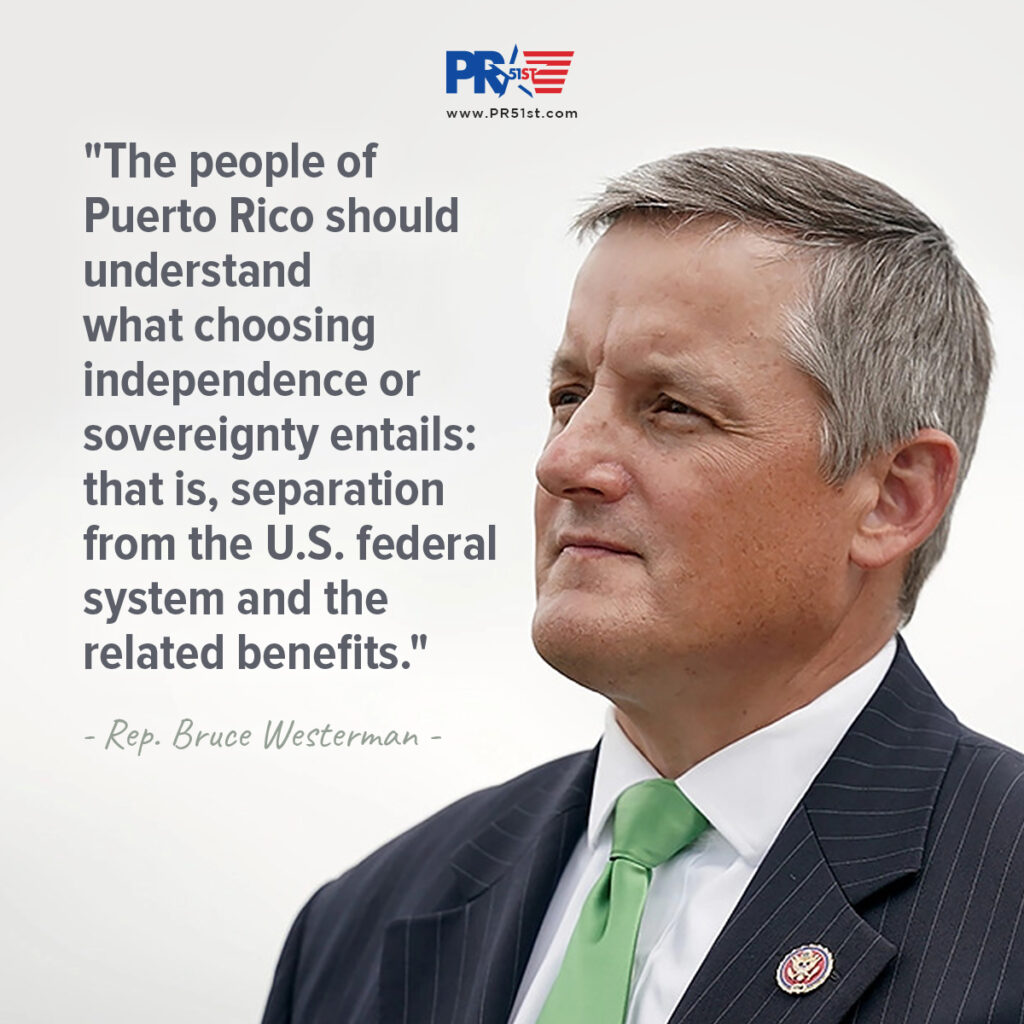“Stop the scare tactics,” wrote a commenter when we pointed out that citizens of a new Republic of Puerto Rico would not be guaranteed U.S. citizenship. We often see this idea: that pointing out the possible loss of U.S. citizenship under independence (including independence with free association) is a meaningless scare tactic, designed to frighten people away from independence.
Let’s look at the facts
In 1917, Congress declared that Puerto Ricans — unless they chose not to — were all “deemed and held to be citizens of the United States.” Everyone had six months to declare that they did not want to be citizens of the U.S., so it was not forced upon them, but it is statutory citizenship, conferred by Congress. The name of the law was the Jones-Shafroth Act.
One of many documents explaining this is a report by Rep. Don Young, who said, citing a Congressional Research report from John Killian, that “Full equal citizenship, irrevocable in the same legal and political sense as citizenship due to birth in a state of the union, comes only with full integration of Puerto Rico into the union. The current citizenship status of Puerto Ricans exists at the discretion of Congress…the suggestion that the current citizenship can be guaranteed or that it is irrevocable by a future Congress is dangerously misleading.”
The citizenship of people born in a state is sometimes called constitutional citizenship, because it is part of the U. S. Constitution.
The 14th amendment to the U.S. Constitution says that “All persons born or naturalized in the United States, and subject to the jurisdiction thereof, are citizens of the United States and of the State wherein they reside.”
This doesn’t cover Puerto Rico, because it is about the states, not the territories. The Insular Cases say that Puerto Rico is not in the United States, but belongs to the United States. This means that people born in Puerto Rico are U.S. citizens because of a law made by Congress. A later Congress can always change a law made by an earlier Congress, so a future Congress can always rescind U.S. citizenship for Puerto Rico.
Therefore, U.S. citizenship cannot be guaranteed for a nation of Puerto Rico, whether or not it has a Compact of Free Association. Only under statehood can U.S. citizenship be guaranteed.
Would it be different for Free Association?
There is no reason to think that it would. Current free associated states do not have U.S. citizenship. The United States allows dual citizenship in the sense that people who become naturalized in another country do not have to give up their U.S. citizenship as individuals, but the U.,S. has never given citizenship wholesale to all the citizens of another country. That includes the Philippines, which used to be a U.S. territory.
Okay, Congress can take away U.S. citizenship — but would they?
It’s clear that Congress can rescind U.S. citizenship for Puerto Rico, but those who say that the threat to citizenship is a scare tactic often respond by saying that Congress just wouldn’t do that. Rep. Nydia Velazquez, who was born in Puerto Rico but lives in the states and represents New York, recently endorsed the Independence Party candidate for Governor of Puerto Rico. She has said that permanent U.S. citizenship is “the bare minimum” Congress would simply have to provide to Puerto Rico regardless of the Island’s status.
But look what other members of Congress have said on the subject:
These three members, one of whom is currently the chair of the committee in charge of Puerto Rico, all say what many others have said: Puerto Rico would be a foreign country if it were independent. There would be no chance of U.S. citizenship.
These are not statehood supporters trying to scare people away from voting for another status option. They are members of the group that would make the decision.
It’s logical
Choosing independence from the United States on a ballot is not the same as a violent revolution demanding independence, like the one that separated the United States from England. But it’s also not a decision showing patriotism as citizens of the United States. Separatists often suggest that the United States would give Puerto Rico a better deal in negotiations for a COFA than it gives Puerto Rico now as a territory. That is not a reasonable conclusion.
Ambassador Fred Zeder said, “The proposal that virtually 100% of the population of Puerto Rico could keep the current U.S. nationality and statutory citizenship and at the same time also acquire separate Puerto Rican nationality and citizenship under a new government-to-government treaty relationship establishing separate sovereignty, is legally inconsistent and politically incompatible with separate sovereignty for Puerto Rico. This would amount to an upgrade based on a vote by the people of Puerto Rico to terminate U.S. sovereignty in Puerto Rico.”
Where’s the evidence for the scare tactic claim?
One thing we’ve noticed about the people who call information about U.S. citizenship prospects a “scare tactic” is that they never offer any evidence for their claim that Puerto Rico would be able to keep U.S. citizenship. There is no example in history of a people declaring independence from one nation and yet continuing to be citizens of that nation. There is no example of a nation in free association with the United States which is not independent or which has U.S. citizenship. There are no statements from the Supreme Court saying that it could happen.
Sometimes separatists will say that U.S. citizenship will be “negotiated.” They are apparently looking at 70 years of the “commonwealth” party trying to negotiate special deals with the federal government and failing…and deciding that it will be different once Puerto Rico is independent.
Knowing that this is a weak idea, too weak even to be called an argument, they fall back on, “Stop the scare tactics.” U.S. citizenship is guaranteed only under statehood, not independence with or without free association. This is not a scare tactic. It is the truth. If you want to keep your U.S. citizenship, be sure to vote for statehood on November 5, 2024.












No responses yet